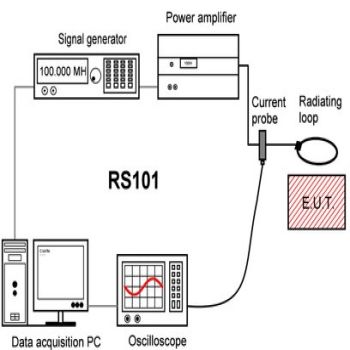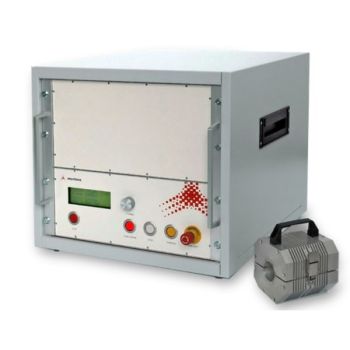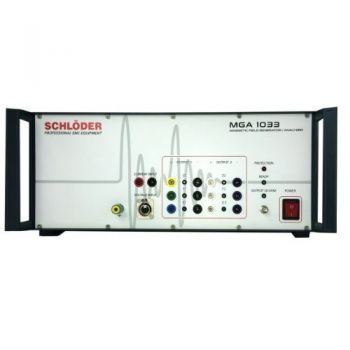Call For More Details: +1 (703) 774-7505
Phone : +1 (703) 774-7505
MIL-STD-461 RS101
Categories
-
Automotive +
- BMW GS 95002-3
- CISPR 12
- CISPR 25 (EN 55025)
- FMC1278
- FMC1280
- GM W 3097
- IEC 61851-21-1
- IEC 61851-23
- ISO 11452-2
- ISO 11452-3
- ISO 11452-4
- ISO 11452-5
- ISO 11452-8
- ISO 11452-9
- ISO 16750-2
- ISO 21498
- ISO 7637-2
- ISO 7637-3
- ISO 7637-4
- LV 123
- LV 124
- LV 148
- MBN 11123
- PSA B21 7112
- SAE J 1113/2
- SAE J1752/3
- UN ECE R10
- VW 80300
- VW 80303
-
Component +
-
International Product Standards +
- CISPR 14-1 (EN 55014-1)
- CISPR 14-2 (EN 55014-2)
- CISPR 15 (EN 55015)
- CISPR 22 (EN 55022)
- CISPR 24 (EN 55024)
- CISPR 25 (EN 55025)
- CISPR 32 (EN 55032)
- CISPR 35 (EN 55035)
- EN 55103
- IEC 60060-2
- IEC 60065
- IEC 61643-11
- IEC/EN 50561-1
- IEC/EN 50561-3
- IEC/EN 61000-4-20
- IEC/EN 61000-6-1
- IEC/EN 61000-6-2
- IEC/EN 61543
- ISO 14708-3
-
International Test Standards +
- ANSI C63.16 ESD
- ANSI C63.4
- ANSI C63.5
- ANSI/IEEE C62.41
- CISPR 16-1-1
- CISPR 16-1-2
- CISPR 16-1-4
- CISPR 17
- CISPR 22 (EN 55022)
- CISPR 32 (EN 55032)
- IEC 60
- IEC 61000-4-25
- IEC/EN 61000-3-11
- IEC/EN 61000-3-12
- IEC/EN 61000-3-2
- IEC/EN 61000-3-3
- IEC/EN 61000-4-10
- IEC/EN 61000-4-11
- IEC/EN 61000-4-12
- IEC/EN 61000-4-16
- IEC/EN 61000-4-18
- IEC/EN 61000-4-19
- IEC/EN 61000-4-2
- IEC/EN 61000-4-29
- IEC/EN 61000-4-3
- IEC/EN 61000-4-34
- IEC/EN 61000-4-39
- IEC/EN 61000-4-4
- IEC/EN 61000-4-5
- IEC/EN 61000-4-6
- IEC/EN 61000-4-8
- IEC/EN 61000-4-9
- IEEE 1309
-
Military & Avionics +
- DEF-STAN 59-411
- DO-160 (RTCA)
- DO-160 Section 17
- DO-160 Section 19
- DO-160 Section 20
- DO-160 Section 21
- DO-160 Section 25
- MIL-STD-1275E
- MIL-STD-1275F
- MIL-STD-188-125-1
- MIL-STD-188-125-2
- MIL-STD-331
- MIL-STD-461
- MIL-STD-461 CE101
- MIL-STD-461 CE102
- MIL-STD-461 CS101
- MIL-STD-461 CS106
- MIL-STD-461 CS109
- MIL-STD-461 CS1116
- MIL-STD-461 CS114
- MIL-STD-461 CS115
- MIL-STD-461 CS117
- MIL-STD-461 CS118
- MIL-STD-461 RE101
- MIL-STD-461 RE102
- MIL-STD-461 RS101
- MIL-STD-461 RS103
- MIL-STD-461 RS105
- MIL-STD-464
- NATO AECTP-250 Leaflet 253 (STANAG 4235)
- NATO AECTP-500 Leaflet 508 (STANAG 4239)
- NATO AECTP-500 series
- STANAG 3516
- STANAG 4435, STANAG 4436, and STANAG 4437
-
Safety +
-
Telecom/Wireless +

MIL-STD-461 RS101
RS101, part of MIL-STD-461, evaluates an equipment’s ability to withstand low-frequency magnetic fields (typically from 30 Hz to 100 kHz). The test simulates conditions where nearby electronic or magnetic sources—such as motors, inductors, or transformers—could create magnetic fields strong enough to disrupt sensitive systems. Ensuring resilience to these fields is critical in mission-critical environments, where uncontrolled interference or malfunction can lead to compromised performance or system failures.
During an RS101 test, a magnetic field coil or loop is placed near the Equipment Under Test (EUT). An alternating current (AC) signal within the specified frequency range is driven through the coil, creating a controlled, measurable magnetic field. The strength of this field is gradually increased or swept across the test frequencies according to the standard’s requirements. Meanwhile, the EUT operates in all relevant modes to capture its most vulnerable operating conditions. Test engineers monitor the EUT for any signs of operational anomalies—such as malfunction, data corruption, degraded output signals, or system resets.
A successfully completed RS101 test demonstrates that the product can endure low-frequency magnetic interference without performance degradation or disruption. This is especially important in defense, aerospace, and industrial sectors where high-reliability systems operate in complex electromagnetic environments. By meeting RS101 requirements, manufacturers and users gain confidence in the EUT’s ability to function reliably under real-world electromagnetic stress.
Test System for MIL-STD-641 CS114, CS115, CS116
- Automatic calibration for the whole test frequency range
- Application of all test frequencies automatically. The level can be selected or automatic.
- NO need to manually configure the measurement equipment
- NO need to manually integrate the transfer function of probes and attenuators
- Generation of test reports: NO need to record all values read from the measurement equipment
- Generation of calibration reports: NO need to record all calibration setting parameters
- Rack together and add CS101, CS109, and RS101 (sections 18, 19, and 20 of the RTCA DO-160G are also available.)
The compact magnetic field generator and analyzer MGA 1033 allows susceptibility tests against magnetic fields from DC to 250 kHz according to the standard EN 55103-2 and their measurement according to EN 55103-1. In addition, EMC tests are possible according to various standards such as automotive, avionic and MIL-STD.; Generation of magnetic fields from DC to 250 kHz; Field strength up to 1000 A/m; EN 55103-1/2, MIL-STD 461, Automotive etc.; Accessories: Loop sensors, Helmholtz coils etc.;

GET QUOTE


